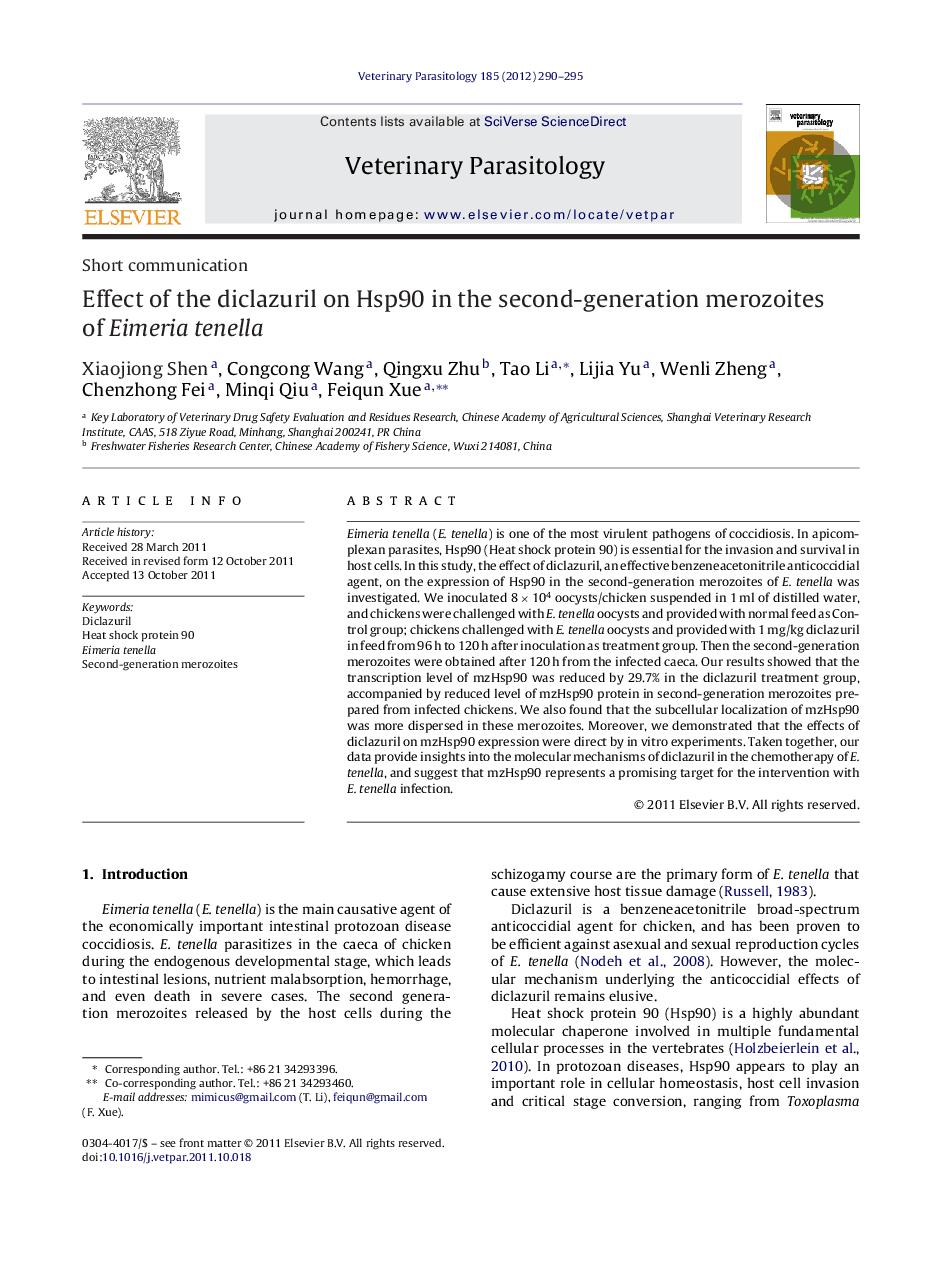| Article ID | Journal | Published Year | Pages | File Type |
|---|---|---|---|---|
| 5805161 | Veterinary Parasitology | 2012 | 6 Pages |
Abstract
Eimeria tenella (E. tenella) is one of the most virulent pathogens of coccidiosis. In apicomplexan parasites, Hsp90 (Heat shock protein 90) is essential for the invasion and survival in host cells. In this study, the effect of diclazuril, an effective benzeneacetonitrile anticoccidial agent, on the expression of Hsp90 in the second-generation merozoites of E. tenella was investigated. We inoculated 8Â ÃÂ 104 oocysts/chicken suspended in 1Â ml of distilled water, and chickens were challenged with E. tenella oocysts and provided with normal feed as Control group; chickens challenged with E. tenella oocysts and provided with 1Â mg/kg diclazuril in feed from 96Â h to 120Â h after inoculation as treatment group. Then the second-generation merozoites were obtained after 120Â h from the infected caeca. Our results showed that the transcription level of mzHsp90 was reduced by 29.7% in the diclazuril treatment group, accompanied by reduced level of mzHsp90 protein in second-generation merozoites prepared from infected chickens. We also found that the subcellular localization of mzHsp90 was more dispersed in these merozoites. Moreover, we demonstrated that the effects of diclazuril on mzHsp90 expression were direct by in vitro experiments. Taken together, our data provide insights into the molecular mechanisms of diclazuril in the chemotherapy of E. tenella, and suggest that mzHsp90 represents a promising target for the intervention with E. tenella infection.
Related Topics
Life Sciences
Agricultural and Biological Sciences
Animal Science and Zoology
Authors
Xiaojiong Shen, Congcong Wang, Qingxu Zhu, Tao Li, Lijia Yu, Wenli Zheng, Chenzhong Fei, Minqi Qiu, Feiqun Xue,
